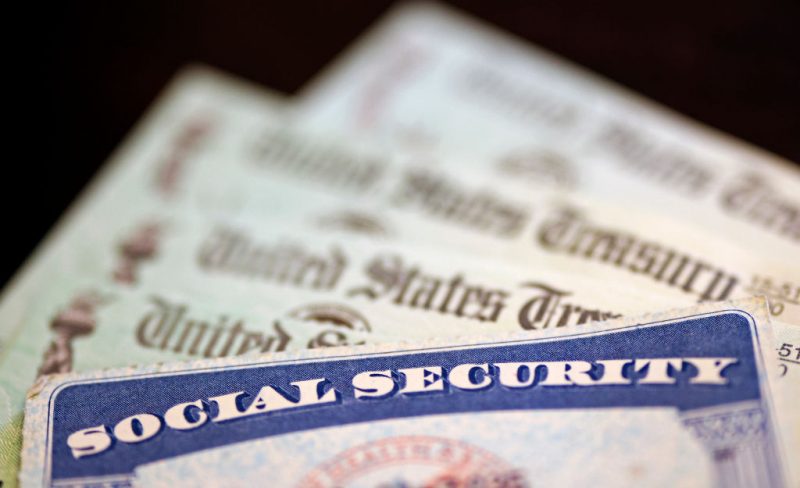
OAN Staff Katherine Mosack
12:46 PM – Thursday, September 25, 2025
After 85 years of issuing paper checks, the Social Security Administration (SSA) will transition to electronic payments to modernize its services.
Starting on September 30th, the approximately 70 million Americans who depend on the SSA for financial assistance will receive their retirement and disability checks through either “direct deposits or a prepaid debit card” — rather than physical paper checks in the mail.
“We have been communicating directly with beneficiaries since July 1st, and we have worked diligently to ensure that the less than one percent of individuals who receive paper checks have ample time to enroll in direct deposit or receive Direct Express cards,” a Social Security spokesperson told CBS MoneyWatch on Tuesday. “By moving to electronic payments exclusively, we aim to improve efficiency, security, and ensure beneficiaries receive their monthly benefits promptly.”
The SSA stated that electronic payments will provide a much safer and secure way to deliver benefits compared to paper checks, which are “16 times more likely” to be lost or stolen, according to the agency.
Eliminating paper checks should also cut costs, as checks cost 50 cents each, compared to electronic fund transfers, which cost 15 cents each.
In an online statement, the SSA noted that only a small percentage of beneficiaries have not yet switched to electronic payment — less than 1%. It will also improve speed and efficiency, as Electronic Funds Transfers (EFTs) are processed more quickly than paper checks, the agency added.
If aid recipients do not set up a direct deposit plan or they don’t have a bank account, the “Direct Express Card” is a prepaid card “designed specifically for federal benefit payments.” “Unbanked” people make up 4.6% of the U.S. population, according to an August report from Bankrate.
President Donald Trump signed an executive order (EO) in March mandating all federal payments be digitized. At the time, the White House emphasized that paper checks cause “unnecessary costs; delays; and risks of fraud, lost payments, theft, and inefficiencies.”
“Mail theft complaints have increased substantially since the COVID-19 pandemic. Historically, Department of the Treasury checks are 16 times more likely to be reported lost or stolen, returned undeliverable, or altered than an electronic funds transfer (EFT). Maintaining the physical infrastructure and specialized technology for digitizing paper records cost the American taxpayer over $657 million in Fiscal Year 2024 alone,” said the White House.
Nonetheless, the U.S. Treasury Department will continue issuing paper checks in certain exceptional cases where electronic payments would cause undue hardship. Individuals who believe they qualify for such exceptions can apply for a waiver by contacting the U.S. Treasury’s Electronic Payment Solution Center at 1-877-874-6347.
According to Treasury guidelines, waivers may be granted under the following circumstances:
- Mental Impairment: The recipient has a documented mental disability that makes it difficult to manage electronic payments.
- Remote Location: The recipient resides in a remote geographic area lacking the infrastructure to support electronic financial transactions.
- Age: The recipient is aged 90 or older.
Stay informed! Receive breaking news blasts directly to your inbox for free. Subscribe here. https://www.oann.com/alerts
What do YOU think? Click here to jump to the comments!
Sponsored Content Below

